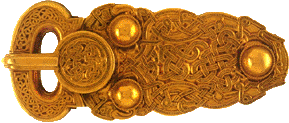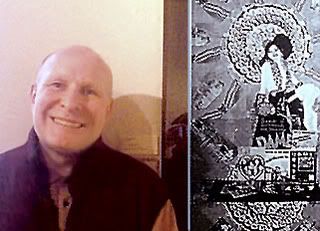Updates are coming: Theater X-Net

Featuring: Ida Rubinstein Belle Epoch Russian/Parisian beauty.
Read more about Ida in Sisters of Salome by Toni Bentley

Visit: Michael's Montana Web Archive
Theater, Art, Flash Gordon, Funky Music and MORE!
Wildlife and Weather: A wonderful, but wet, snowfall continues from yesterday. A Great Blue Heron just spent a half-hour on Middle Foy's Lake.
Charity Alert: The Hunger Site can use your clicks.
Media Watch: The History Channel was running a show about the culture and history of vaguely-known Gauls, calling them Celts. Well the ancient Greeks and Romans may have named certain groups of barbarian invaders Gauls, but that doesn't mean they were Celts. The scholars point to a very wide range of diversity amongst the sub-cultures found in the scant and scattered archeological records of my ancestors, and I don't think we have any reason to be sure about what we know and don't know about them as a group. They didn't use writing themselves, and what was written about them was by the hands of their enemies. Their mysteries remain unsolved in the tantalizing mists of time.

Late Pagan Anglo-Saxon Art -- East Anglia circa 625 A.D.
The same filmmakers also tackled the subject of England in the Dark Ages -- an ugly violent period of tribal migrations, piracy on land and sea, illiteracy, periodic famine and ruin, which came to an end in Britain with the arbitrary milestone of the Norman Invasion and the ascendency of the somewhat-literate trans-European cultural milieu we now call the Middle Ages. There were more of the same afflictions, but fewer migrations. The Black Death, Mongol Invasions, and Ottoman Empire didn't destroy what existed of European civilization, thanks to dumb luck and Providence.
The filmmakers were able to cram what few facts are known about the British Isles between 409 A.D. and 1066 A.D. in an hour-long show. For most of Europe it would have been a tougher task -- the outlying Irish monastaries provided a frail structure for literacy to endure in the North, and the written history of Britain has fewer gaps as a result. (Gaps I said? They are actually CHASMS of ignorance. We still do a lot of guessing.)

from the Sutton Hoo ship burial site in East Anglia (England)
One of Charlemange's few lasting accomplishments was a firm establishment of written language on the continent after 800 A.D. -- good for our civilization, because the entire British Isles were suffering Viking attacks for another two centuries or more. (Those ancestors of mine -- always fighting amongst themselves.)

No comments:
Post a Comment